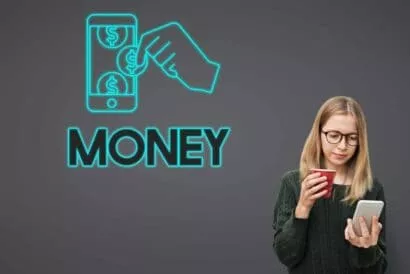Is Venmo safe to use | Your guide to getting started
Ever split a dinner tab with a single tap or paid your roommate rent while waiting for coffee? Venmo makes moving money effortless – but is it secure? You’re not alone in wondering, “Is Venmo safe to use?” Millions trust the app daily, yet headlines about scams and accidental payments keep many hesitant.
This guide cuts through the noise to explain how Venmo protects your money, where risks hide, and how to avoid costly mistakes. We’ll break down encryption shields, FDIC coverage gaps, sneaky scams targeting users, and simple habits to lock down your account.
By the end, you’ll know exactly when to swipe confidently… and when to think twice.
What is Venmo?
Venmo isn’t just another app – it’s your digital wallet for splitting rent, paying freelancers, or buying concert tickets. Owned by PayPal, this peer-to-peer giant lets you zap money to friends via username or QR code, while its business tools help you tip servers or pay contractors. Need plastic? Venmo’s debit card (Venmo for teens) spends your balance instantly, and its credit card rewards top spending categories like dining or travel.
Prefer direct deposits? Link your paycheck to skip bank transfers. But here’s the twist: every payment you make (or receive) can be shared socially. Friends might spot your taco Tuesday splurges in their feed – unless you toggle privacy settings.
With so many ways to move money, it’s natural to ask: Is Venmo safe to use when handling everything from coffee runs to rent checks?
Is Venmo safe to use? Breaking down the basics
Venmo guards your cash like a bouncer at a velvet rope – but even the best security has blind spots. Let’s unpack its safety toolkit:
- Encrypts financial data like bank details and card numbers, shielding them from hackers.
- Flags suspicious activity via 24/7 fraud monitoring, freezing sketchy transactions.
- Locks accounts automatically if someone guesses your password wrong too many times.
But here’s the catch: Venmo isn’t a bank. Funds in your Venmo balance lack full FDIC insurance (unlike cash in traditional accounts). Only money held with partner banks via direct deposit qualifies for federal protection.
| Safety feature | Venmo | Traditional bank |
|---|---|---|
| Encryption | Yes | Yes |
| FDIC coverage | Partial (direct deposit) | Full (up to $250k) |
| Fraud protection | Purchase protection | Zero-liability guarantees |
Bottom line: Is Venmo safe to use? Yes – if you treat it like a temporary wallet, not a vault. Transfer balances to your bank regularly, and layer security settings.
The risks you can’t ignore
Venmo’s convenience hides traps even savvy users stumble into. While its security features work hard, your habits matter just as much. Here’s where things go sideways:
- Payments are (mostly) irreversible: Once you send cash, it’s gone unless the recipient agrees to refund it. Typos in usernames can cost you $200 lattes.
- Your feed could spill secrets: Default settings let friends—or strangers—see your transactions. That “rent” payment to “StudioApartment23”? Now everyone knows your landlord’s Venmo handle.
- Scammers love Venmo’s speed: Fake “fraud alert” texts or payment requests from cloned profiles trick users daily.
The FTC reports that peer-to-peer payment scams surged by 70% in 2023, with Venmo a prime target.

Is Venmo safe to use? Yes – but only if you treat it like cash in a crowded room: guard it closely, double-check details, and never assume “undo” exists.
How Venmo protects you (And how to protect yourself)
Venmo isn’t just fast – it’s armored with safeguards, but your moves matter too. The app’s built-in defenses include:
- Bank-grade encryption scrambling your data like a vault combo.
- Real-time fraud alerts flagging shady transactions before they clear.
- Purchase protection for eligible business payments, backing you if goods arrive broken or never show.
Yet even the best tools need a human touch. Here’s how to lock things down:
- Turn on two-factor authentication (2FA): Add a fingerprint or SMS code to block unauthorized logins.
- Set transactions to “Private”: Stop oversharing in the feed—your rent payments don’t need an audience.
- Transfer balances weekly: Treat Venmo like a temporary wallet, not a savings account.
Venmo’s security hub offers step-by-step guides for these settings.
Is Venmo safe to use? Absolutely – if you pair its shields with smart habits. Think of it like a car: airbags help, but buckling up saves lives.
When Venmo isn’t safe: Red flags to watch
Scammers love Venmo’s instant transfers – but these red flags can save your wallet:
- Too-good-to-be-true deals: A $500 iPhone listed for $200? Venmo-only sellers often vanish after payment.
- Fake “Venmo support” calls/texts: Legit companies never ask for passwords via SMS. Delete and block.
- The overpayment scam: A buyer “accidentally” sends extra cash, demands a refund, then reverses the original stolen payment.
- Urgent threats: “Your account will freeze!” messages pressure you to act fast. Always verify in-app.
The FTC reports payment app fraud cases doubled in 2023, with Venmo frequently targeted. These scams prey on panic – so breathe before you tap.
Is Venmo safe to use? Yes – if you slow down. Check seller profiles, avoid off-app deals, and trust your gut. If a deal feels shady, it probably is.
Venmo for businesses: Safer than you think?
Venmo isn’t just for splitting brunch bills – it’s a lifeline for freelancers, food trucks, and online sellers. But is Venmo safe to use for invoices and sales? Let’s crack the code:
Venmo’s purchase protection covers eligible business transactions, shielding sellers from fraudulent chargebacks and buyers from undelivered goods. Here’s the playbook:
- Sellers can fight “item not received” claims by providing shipping proof.
- Buyers get refunds for damaged goods or ghosted orders.
Documentation is key: Save receipts, tracking numbers, and screenshots of buyer chats.
But there’s a catch: Business accounts lack FDIC insurance, even with direct deposit. Plus, the IRS requires reporting all Venmo income over $600 annually – track every penny like it’s your last.
Is Venmo safe to use for your side hustle? Yes – if you armor up with purchase protection, ironclad records, and treat it as a cash register, not a vault.
Is Venmo safe to use? Final verdict + pro tips to stay protected
Venmo’s blend of speed and security makes it a go-to for splitting bills or paying freelancers – but only if you play by the rules. To answer the burning question: Is Venmo safe to use? Yes, as long as you enable 2FA, transfer balances regularly, and treat public feeds like a diary (keep it locked). Avoid off-app deals, document business transactions, and always double-check usernames.
For peace of mind, pair these habits with expert guidance. Need help securing your finances? H&S Accounting & Tax Services specializes in digital payment strategies for individuals and businesses. Explore their financial security services to lock down your Venmo use today.







